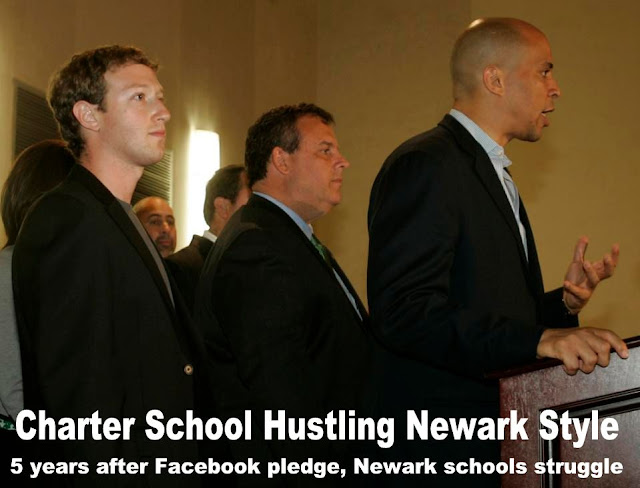“I don’t think Chris Christie learned anything”: Phony education “reform,” Facebook cash, and the real casualty — public school students
Mark Zuckerberg, Chris Christie and Cory Booker were going to remake Newark's schools. Something got in the way
Q: As someone who spends a fair amount of time poking around in the smoldering wreckage of urban public education, I often get the sense that education reform advocates don’t have a plan for what’s going to happen to the kids reform leaves behind—the ones who remain in what’s left of the public schools after the traditional system has been disrupted. But in Newark, as you document in your new book “The Prize: Who’s In Charge of America’s Schools,”this was literally the case. There was no plan.
A: No, there really wasn’t a plan. What I heard the reformers saying was: ‘Well, it will shake out.’ The teachers in the schools that were closing would be laid off but the really good ones would be hired by charters so they’d still be in the community, and the kids would find their way back to good teachers. And I just thought, well, there’s so much in between closing the the schools and kids finding their way to good teachers. How is that going to happen? If you view the world as a business model, an idea like that looks like it makes sense but if you’re on the street living the lives of these children and these families it doesn’t happen so smoothly. I do think, by the way, that there’s some soul searching going on in lots of places about the top-down nature of reform—having outsiders with outside money come in and do reform tocommunities instead of with communities. The question of what happens to the other kids is one that’s been missing from the agenda and may now be finding its way onto it.
Your book starts with Facebook CEO Mark Zuckerberg’s decision to give $100 million to transform the Newark schools. One of the surprising parts of the story is just how involved Facebook was, including Sheryl Sandberg, who seems to have spent a lot of time encouraging reform leaders like Cory Booker to “lean in” and listen to the community.
Sandberg kept writing emails saying: ‘This piece is so important—it has to be a priority. What are you doing to have the community informed and involved?’ She was very aware of the fact that this was going to be announced on national television and that the community wasn’t going to know anything about it.
Of course, as you chronicle, the top-down vision of “disruptive transformation” won the day. But reading the book, it’s hard to imagine that this kind of reform could be done any way besides from above. Do you think this is the choice that people in Newark would have made if they’d been given the choice?
Do you mean would they choose to have the charter system expand and the district collapse? Someone said to me that they didn’t understand why there was so much opposition if there’s also so much of a constituency that wants to put their kids in charters in Newark. But the proponents and opponents are often the same people. They want to put their children in a charter school but they haven’t really reckoned with the cost of that. Somebody, probably somebody in their own family, or their neighbor, is going to get laid off. Or they might have another child who is in a district school and that school might suffer as a result of cutbacks or teacher upheaval, or the services the child has might disappear. Everybody in Newark is experiencing both trends at the same time.
They want to put their children in a charter school but they haven’t really reckoned with the cost of that. Somebody, probably somebody in their own family, or their neighbor, is going to get laid off. Or they might have another child who is in a district school and that school might suffer as a result of cutbacks or teacher upheaval, or the services the child has might disappear.
For all of her flaws, Superintendent Cami Anderson seems to have understood this. You quote her as telling a group of funders that *we’re raising the poverty level in Newark in the name of school reform.* She seemed very aware of the fact that blowing up the district was going to mean putting a lot of people out of work, especially low-skilled workers who’d earned decent wages and “I don’t think Chris Christie learned anything”: Phony education “reform,” Facebook cash, and the real casualty — public school students - Salon.com:



